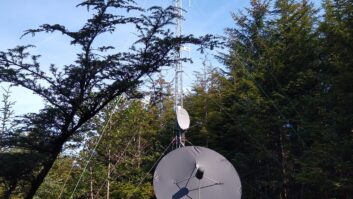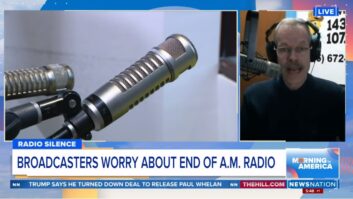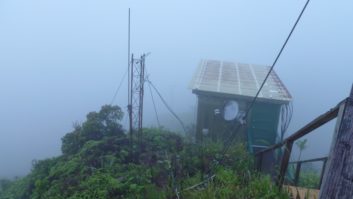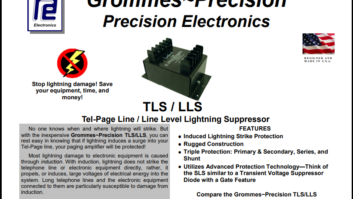In the first part of this series about translators, we looked at the basic regulatory aspects of FM translator stations. In the second, we approached translators from the perspective of the licensee and in particular, the licensee of an FM translator that is an in-contour fill-in translator carrying either an AM station or an HD sub-channel. Read those at radioworld.com/translators.
In this part, we look at some of the challenges faced by AM station licensees who wish to acquire an FM translator, either in the marketplace or in the proposed AM-only FCC filing window for FM translators.

iStockphoto/Robin Olimb For an AM licensee, there are two potential paths to obtaining an FM translator: The purchase or lease of a currently authorized FM translator; or applying in the proposed AM-only FM translator window. The latter assumes the FCC will move forward with AM revitalization.
An FM translator re-broadcasting an AM station must be at a location in which the translator’s 60 dBμ contour is within the AM station’s 2 mV/m contour and does not extend greater than 25 miles from the AM transmitter site. Moving FM translators can be problematic. The FCC rules specify that there must be a 60 dBμ overlap between the existing and proposed translator facilities to qualify for a minor change move of an FM translator (a major change is prohibited except in filing windows, the last of which occurred in 2003). In the past several years, the FCC’s Audio Division has imposed significant limitations on sequential FM translator transmitter site moves, putting many existing FM translators out of reach for AM broadcasters.
EXCEPTIONS
If an FM translator is to be moved to serve an AM station, a Mattoon waiver may be requested to move a greater distance than the current rules allow. A Mattoon waiver grant requires, among other elements, that the protected or interfering contour at the authorized translator site overlaps the opposite contour at the desired translator site (i.e., either the protected contour overlaps the interfering contour, or vice versa). The FCC will impose a four-year restriction that ties the translator to the primary AM station upon a grant of a Mattoon waiver.
AM-ONLY
It may be equally problematic for an AM station to acquire an FM translator in the prospective AM-only FM translator window. The FCC has proposed limiting applications to one per applicant. The problem with limiting applications to one per applicant using the FCC’s window filing system is that in areas where there may be more than one available frequency, the applicant is forced into a position of rolling the dice on the choice of a channel.
GOOD LUCK
If an AM station applicant for an FM translator in the upcoming window is fortunate to choose a frequency for which no other AM station applies, a grant should be forthcoming quickly. If, however, an applicant is less lucky and picks a frequency for which others apply, the applicant may be forced into an FCC auction where only the high bidder is awarded an FM translator construction permit. This is a poor way for an AM licensee to plan for the future acquisition of an FM translator.
An expansive proposal for an AM licensee to obtain and move an FM translator to a suitable location was recently denied by the FCC’s Audio Division in its Tell City waiver decision. The waiver would have allowed AM stations to obtain FM translators in the marketplace and move the transmitter site a greater distance than now allowed by either the current minor change rules or the Mattoon waiver. Had the Tell City waiver been granted, AM revitalization benefits would have accrued to both AM stations and to the AM listening public.
APPEAL
The Tell City waiver applicant, in conjunction with the Minority Media and Telecommunications Council, has appealed the Tell City waiver denial. The National Association of Broadcasters filed in support of the appeal. (Full disclosure: I represented the proposed buyer of the FM translator in the Tell City waiver application, as well as the applicant in the Mattoon waiver decision.)
If the FCC appeal should be successful, the Tell City waiver would allow for far greater benefits than just about any other AM revitalization proposal currently pending.
Finally, as noted in the previous article of this series, the FCC’s possible adoption of FM rule changes such as the proposed Class C4 category or assigning FM stations using only contour protection could be pernicious to continued FM translator service. Either could decimate a number of existing and future translators obtained by AM stations.
Next time, we will look at some issues full-service stations may have with possible interference from FM translators.
Send questions about this series to[email protected].
John F. Garziglia is a veteran radio and television attorney offering assistance in all areas of Federal Communications Commission law in the Washington offices of Womble Carlyle. For other publications, see listings at www.linkedin.com/in/johngarziglia.












